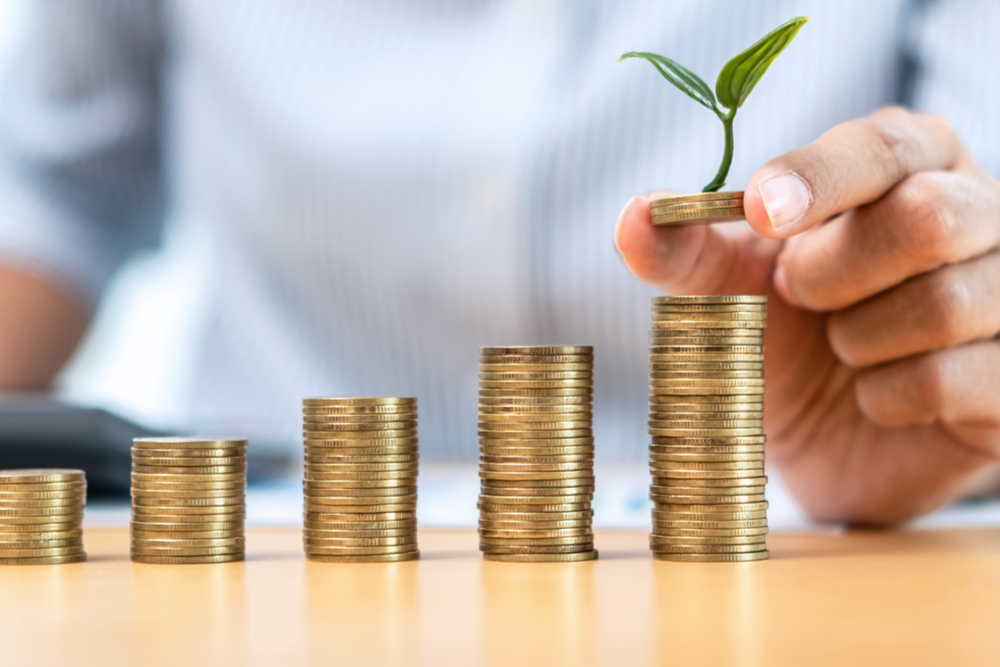Podcast Ep 230: On a mission to get 1m women entrepreneurs funded by 2030, Anne Ravanona urges how women entrepreneurs could add 26% to global GDP.
Anne Ravanona is such a globally recognised advocate for access to funding women entrepreneurs that you’d almost forget she was Irish.
She laughs at my clumsy, embarrassed observation. “I am Irish. I am born and bred in Dublin, but living in Paris and I work with a lot of Americans which is why I have an American twang.”
“If a woman running a business suddenly finds herself at a point where the business is ripe for investment and she can’t get the investment then that is completely wrong”
Ravanona is also an expert at the European Commission and gender equity advocate at ChangeNow, the Earthshot Prize and a thought leader at Cartier’s RedBoxMe global community. She works tirelessly with women entrepreneurs as well as governments and corporates on an issue about which she is intensely passionate. I first observed her on stage in Dublin at the Inspirefest conference in 2018 and she is just as passionate.
Listen to her
Ravanona discussed the persistent funding gap for women entrepreneurs, noting that only 2% of global venture capital goes to women, with Europe at 3% and Ireland at 10%.
“This hasn’t actually changed much in over 30 years, so there’s a big gap.
“When I started Global Invest Her 11 years ago, I did it because the statistic at the time that the World Bank said was a credit gap globally between male and female entrepreneurs at the time was $300bn and that was enough to make me angry and say ‘I want to fix it.’”
Things have clearly worsened. Fast forward to just before Covid struck in 2020, and that credit gap had expanded to $1.7 trillion. Paraphrasing the Charles Dickens line ‘it was the best of times, it was the worst of times’, Ravanona is equally outraged and optimistic. “These are horrible statistics and the World Economic Forum reckons it will take 152 years to get to gender equality in the economy. When I did my TEDx Talk in 2015 it was 80 years. So we’ve basically doubled the numbers in a short space of time. I could cry and say that is dreadful. But on the good side, things are starting to change. First of all we are talking a lot more about the funding gap than we ever have before. We are seeing more funds founded by women.
“The lack of women investors is definitely a thing because again, globally, about 12% of managing partners and general partners of venture capital funds are women. And when it comes to angel investing, less than 20% of private money invested in start-ups comes from women. So again, the gap is huge.”
She points out that the real figure could be as low as 14% in the UK alone.
“We are seeing more funds focused on investing in women, mainly in the US but also in Europe, we are seeing more programmes to invest in women and other minorities. So we are seeing progress. It’s just too damned slow. We need to speed it up.”
I pointed to a growing trend among entrepreneurs, particularly many of the women entrepreneurs I’ve met recently, towards bootstrapping. “I’d say women entrepreneurs in particular have had to do more bootstrapping because of the lack of other sources of funding available to them. So it’s a particularly different scenario for women founders specifically. Generally we’re seeing a dip in venture capital funding across the world, post-pandemic. There was a big shoot up in 2021 and 2022 but in 2023 with the war in Ukraine and everything that’s happening in the Middle East, investors are closing the taps and are not investing as much in new start-ups or will just double-down on the ones they’ve invested in.”
This perfect storm is creating an environment where founders are holding on by bootstrapping. “Women in general have had to bootstrap. We tend to go further with a third less capital than men, according to research from the Kauffman Institute. Women are not bootstrapping out of choice. The majority are doing it out of necessity.”
Invest in her
While Ravanona emphasised the need for systemic change, including policy incentives and reducing bias in investment decisions, she also stressed the importance of visibility for successful women entrepreneurs to inspire and attract more investment.
Crucially, though, she says venture capital isn’t the only source of funding around.
“There’s a reason why venture capital exists and certainly if it’s the right time for you and your company then it’s the right thing to do. But if you can hold onto your destiny longer, then that’s a great thing too. But at the same time, if a woman running a business suddenly finds herself at a point where the business is ripe for investment and she can’t get the investment then that is completely wrong.
“There are many more sources of funding out there. Venture capital gets glorified as an asset class. I’m actually more excited about angel investment – how can we unlock this dormant money that’s sitting there. People tend to invest their hard-earned savings or disposable income in property or stocks. I would say do that but diversify your portfolio – invest in stocks, do some property but have a percentage that could go into start-ups or even better, women-founded or co-founded start-ups.”
For Ravanona, the definition of a woman-founded start-up is one where she has at least 20% to 25% equity. “Not this kind of cosmetic ‘oh, she’s got 5%’. None of that.”
Ravanona’s passionate pursuit of righting a universal wrong began when she turned 40. The tragic loss of her brother a few years earlier combined with a desire to break away from the corporate treadmill had her contemplating her future.
“I went to an event in London with women entrepreneurs that was organised by the Cherie Blair Foundation and a woman entrepreneur was speaking. I put my hand up and asked ‘what’s your biggest challenge?’ And she said ‘access to funding’. And just like in the cartoons, a light-bulb went off in my head – why was it so much harder for women to raise funding and why did that resonate so much with me?”
The answer was that all of the various gender-based biases that Ravanona had encountered in her career up to that point were bubbling to the surface. “Was this another symptom of because you are a woman you are treated differently when it comes to access to capital? So I got curious and that’s when I found that statistic from the World Bank that there was this $300bn credit gap. And then I got angry and said ‘Right, this is what I need to work on’. Why did it resonate? Because my greatest personal value is about respect and equality.”
One of two sisters out of a family with four other brothers growing up to contend with, Ravanona was used to fighting her corner. “It made me more of a feminist when I heard a child saying ‘oh, they’re able to do things that I can’t. That’s not fair.’”
Ravanona’s epiphany at the conference was profound. “I was talking about funding for women entrepreneurs before it was a hot topic. This is a thing that can change the world. Because I really do believe that if we invest in more women entrepreneurs we can reignite the global ieconomy and we can create better, more innovative products and services. Why? Because women see the world differently. We see different problems. We solve them differently and we usually take into account the society at large in a different way than male founders to.
It’s just the way we are. We think differently and yet we are totally compatible. That’s the great thing, the best formula is when you’ve got a male/female founder team. That’s really fantastic.
“If we invested more in women entrepreneurs, according to the McKinsey Global Institute, investing in women entrepreneurs could add up to $28 trillion to the global economy, which would translate into a 26% increase in GDP globally by 2025.”
Ravanona says it is time to reallocate some of the resources from only 2% of venture capital is going to women founders and mixed teams are getting between 12% and 18%. “So the majority is going to white dudes who all look like each other and the investors who invest in them. So the opportunity is enormous and that’s what excites me.”
-
Bank of Ireland is welcoming new customers every day – funding investments, working capital and expansions across multiple sectors. To learn more, click here
-
Listen to the ThinkBusiness Podcast for business insights and inspiration. All episodes are here. You can also listen to the Podcast on:
-
Spotify
-
SoundCloud
-
Apple





